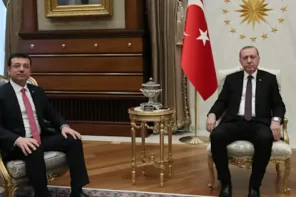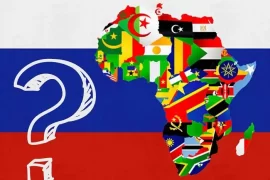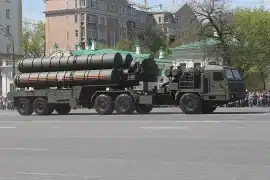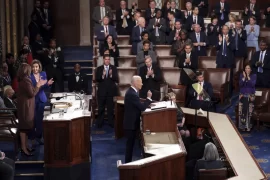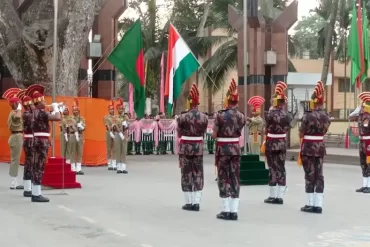On January 4, 2023, the Tehrik-e Taliban Pakistan (TTP) released a statement warning the country’s main ruling parties of “concrete action” against their top leadership in the government for “declaring war” against it.
The threat came just two days after the National Security Committee (NSC) of Pakistan announced its resolve to have “zero tolerance for terrorism” in the country and “reaffirmed its determination to take on any and all entities that resort to violence”.
In order to understand the prospects for the Pakistani government’s efforts to defeat the TTP, it is important first to know what the group wants in Pakistan.
Who are the TTP?
Talibans have been active in Afghanistan and Pakistan for decades.
In Pakistan, the group is known as the (TTP) which was formed in 2007 as an umbrella organization for various factions of the Taliban operating in Pakistan, with the goal of overthrowing the Pakistani government and establishing a strict Islamic state in the country.
Despite efforts by the Pakistani government and international organizations to combat the TTP, the group remains a significant threat to stability and security in the region.

What TPP wants
Delegitimizing Pakistan’s claim on FATA
One of the TTP’s primary goals is the delegitimization of Pakistan’s claim on an area known as the Federally Administered Tribal Areas (FATA), which borders Afghanistan. The TTP and its allies in the Afghan Taliban believe that FATA should have a semi-governed status rather than being fully integrated into Pakistan.
The demand for a change in FATA’s status is not without precedent.
Prior to the creation of Pakistan, FATA was a semi-governed area with a degree of autonomy.
However, after the creation of Pakistan in 1947, the government sought to integrate FATA into the country and extend its control over the region.
This led to resistance from some elements in FATA, and the area has been the site of conflict and unrest for many years.
The TTP and the Afghan Taliban support the removal of border fencing between Pakistan and Afghanistan as a means of promoting greater integration and cooperation between the two countries.
The Taliban, both in Afghanistan and Pakistan, have publicly challenged the legitimacy of the Afghanistan-Pakistan border, specifically the colonial-era Durand Line.
Tensions have risen as a result, particularly after Taliban fighters dismantled sections of Pakistan’s border fence.
Pervez Hoodbhoy, a Pakistani scholar, believes that the only long-term solution to the conflict over FATA and the border region between Pakistan and Afghanistan is through the creation of goodwill, a renunciation of force, and the softening of borders.
He argues that the ‘unnatural, century-old division’ between the two countries (Durand line) should not be allowed to permanently damage their relationship.
Establishment of a Sharia-based Islamic state
The TTP’s ultimate goal is the establishment of a sharia-based Islamic state in Pakistan.
The group believes that the Pakistani government is illegitimate and that it is the duty of Muslims to overthrow it and establish an Islamic state in its place.
They seek to impose a strict interpretation of Islam on the country’s population.
This includes the implementation of sharia law and the enforcement of strict social codes, such as the segregation of men and women and the enforcement of dress codes for women.
They aim to begin by implementing sharia law in the Federally Administered Tribal Areas (FATA) of Pakistan and then gradually extending the system across the entire country.
The tactics and activities of the TTP
The TTP has employed a range of tactics in its efforts to achieve its goals.
The group is known for its use of suicide bombings and targeted assassinations, as well as its involvement in kidnappings and extortion.
The TTP has also carried out a number of large-scale attacks, including the 2009 attack on the Pakistani Army General Headquarters in Rawalpindi and the 2014 attack on the Karachi airport.
In addition to its attacks on government and military targets, the TTP has also targeted civilians, including religious minorities and individuals who it considers to be “un-Islamic.”
The group has been responsible for a number of high-profile attacks on schools, including the 2014 attack on a school in Peshawar that resulted in the deaths of over 140 people, most of whom were children.
The rise to power of the Afghan Taliban has emboldened the anti-Pakistan militant group, the TTP, leading to an increase in violence against Pakistani security forces.
The Afghan Taliban has been uncooperative in taking action against TTP leaders and members based in Afghanistan, and appears to be providing the group with sanctuary and support instead.
The TTP has also been influenced by the ongoing conflict in Kashmir, where it has supported separatist groups and carried out attacks against Indian targets.
Can Pakistan defeat TTP?
The question of whether Pakistan can defeat the TTP has been a topic of much discussion and debate.
While it is difficult to predict the outcome of this conflict, it is clear that in order for Pakistan to be successful in its efforts to defeat the TTP and its backers in Afghanistan, its soldiers must have a clear understanding of their mission and the reasons for their fight.
Pervez Hoodbhoy believes that the Pakistani military’s chances of defeating the TTP are low due to the army’s ideological divisions and confusion.
He points to the 2012 attack on Bannu jail, in which 384 terrorists were released while prison guards stood aside and voiced their support for the Taliban attackers, as evidence of these divisions.
Hoodbhoy argues that without a clear understanding of their mission and the reasons for their fight, the Pakistani military will be unable to effectively combat the TTP.


